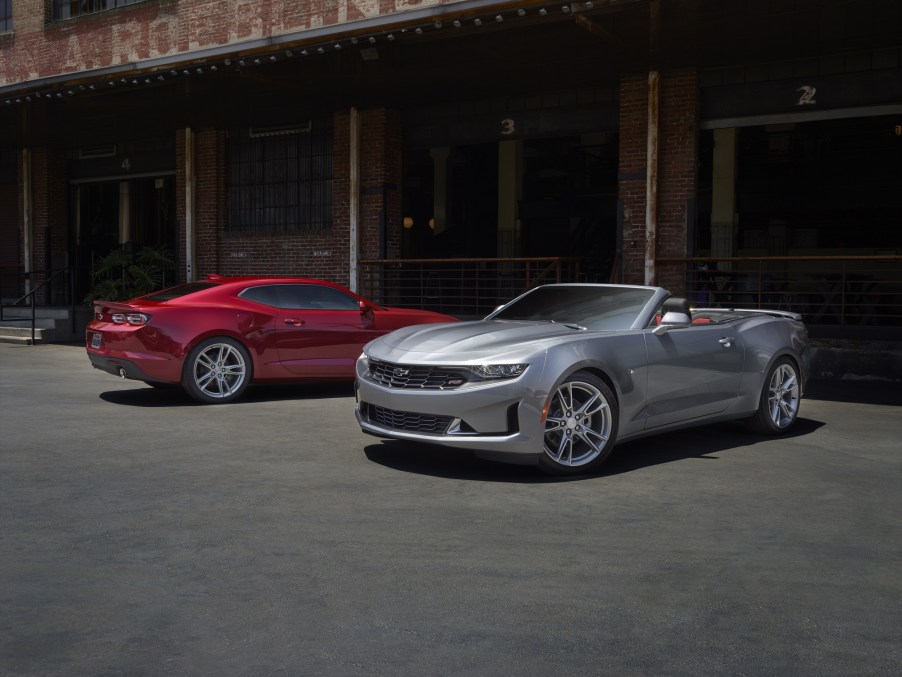
A Sports Car and a Muscle Car: What’s the Difference?
You may have heard muscle cars like the Ford Mustang and Dodge Challenger referred to as sports cars. However, it is a more infrequent occurrence to hear a sports car referred to as a muscle car. So, what’s the difference between a sports car and a muscle car? Also, should it even matter to you as a fan of cars like the Toyota Supra or Chevrolet Camaro?
What is a sports car?
A sports car is a simple and theoretically flexible recipe; it doesn’t require long-winded defensive ramblings. They’re often two-door applications, with a coupe, convertible, or removable roof, like a targa top. Beyond the number of doors and the roof, the cars typically pack an eager engine, responsive handling, and sporty, sometimes ambitious styling. However, there are a few misconceptions about the moniker that simply are simply ridiculous yet remain the point of many pub brawls.

First, sports cars don’t have to be two-seaters. For instance, the Chevrolet Camaro ZL1 has razor-sharp handling and track day credentials well above that of a traditional pony car, with rear seats, albeit snug rear seats. Next, sports cars don’t have to pack class-leading power. The Mazda MX-5 Miata is not only one of the only true roadsters on the market, it’s a sports car that produces less horsepower than many motorcycles.
What is a muscle car?
Depending on your definition, a muscle car has one constant in its formula: horsepower. That’s why when the term “modern muscle car” comes up in conversation, the typical image associated with it is a Dodge Challenger or a similar car. However, not everyone thinks muscle cars have to be American. MotorTrend considers the Mercedes-Benz AMG E 63 S a muscle car, despite its four doors and luxury badge.
A muscle car has to produce big horsepower, but it can also hit many of the criteria of a modern sports car. For example, the Ford Mustang GT Convertible has a soft top, somewhat responsive handling, and around 460 horsepower. Frankly, it will grace the laminated list of sports car options when you choose your next rental.
Can a vehicle be both a muscle car and a sports car?
Unless you’re of a close-minded persuasion, a couple of vehicles don’t prompt scoffing when labeled both a sports car and a muscle car. The first vehicles are the most obvious candidates: pony cars like the Ford Mustang and Chevrolet Camaro. However, iSeeCars considers the Tesla Model S a muscle car, which, considering its four-door construction and EV propulsion system, would cause many car enthusiasts to gasp in derision. Furthermore, MotorTrend hails the Lexus RC F as a muscle car, not just a sports coupe or luxury vehicle.

Does it really matter?
Here’s where some car enthusiasts will smile in agreement, and some will toss their cellphones into traffic: it doesn’t matter. The sports car is one of those living, breathing terms that fans and automakers alike stretch to meet their purposes. To a lesser extent, muscle cars have the same fate. If a Mercedes-Benz wagon can wear that moniker, your custom V8-powered Mazda RX-7 project car can, too.
The definitions shift fluidly and depending on who you ask, your car could be both. Scroll down to the following article to read more about fun vehicles!



